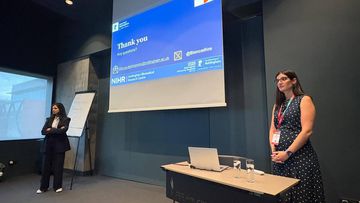GIRFT (Get it Right First Time) – Parkinson’s and MS services to be reviewed in National Census
Following the successful completion of a quality improvement pilot in orthopaedic surgery entitled Getting It Right First Time (GIRFT), the Department of Health and NHS Improvement (NHSI) have commissioned an expansion of the GIRFT programme that will cover an additional 35 clinical areas over four years from April 2017 to support providers in delivering clinical productivity and efficiency improvements. This programme is aligned closely to the Carter work streams in NHSI and the programme is part of the Operational Productivity Directorate of NHSI.The ambition of the programme is to identify areas of unwarranted variation in clinical practice and/or divergence from the best evidence. Each work stream will culminate in a report and set of national recommendations aimed at improving quality of care and also reducing expenditure on complications, litigation, procurement and unproven treatment. This work will also support the development of the Model Hospital, which will provide NHS hospital trusts with a set of numbers to compare all areas of efficiency and productivity alongside their quality indicators and standards. It will allow acute Trusts, using a number of indicators and benchmarks, to assess clinical outcomes for their patients and measures of productivity by specialty and compare these with other Trusts.The Neurology Getting It Right First Time is now being launched. This is being led by Dr Geraint Fuller, Consultant Neurologist at Gloucestershire Hospitals NHS Foundation Trust, and Professor Adrian Williams,
Professor of Neurology at University Hospitals Birmingham NHS Foundation Trust.GIRFT will undertake an analysis of nationally collected neurological data by provider and population including:
- inpatient and outpatient activities,
- drug use,
- measures of radiology and neurophysiology and
- clinical outcomes.
Related articles
Encouraging excellence, developing leaders, inspiring change
MS Academy was established in 2016 and in that time has accomplished a huge amount with exciting feedback demonstrating delegates feel inspired and energised along their personal and service development journeys. The various different levels of specialist MS training we offer are dedicated to case-based learning and practical application of cutting edge research.


